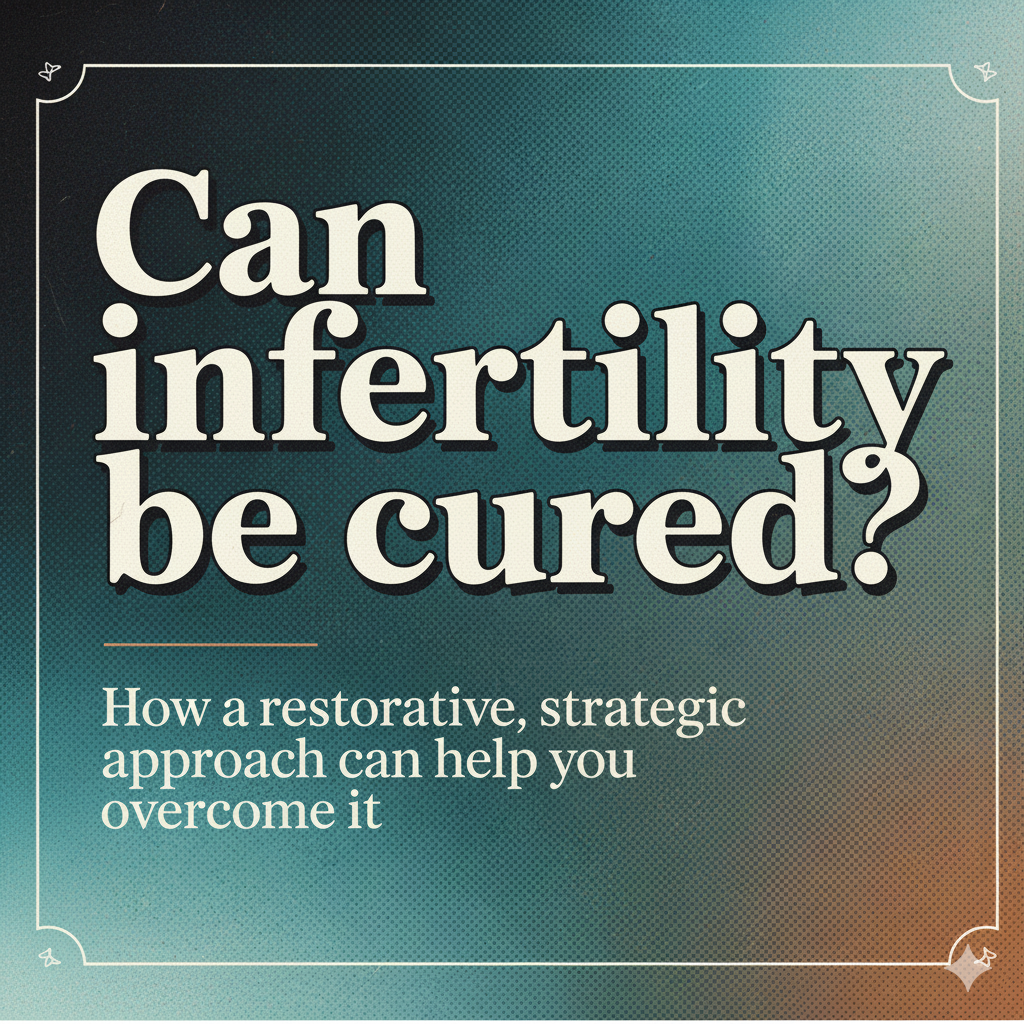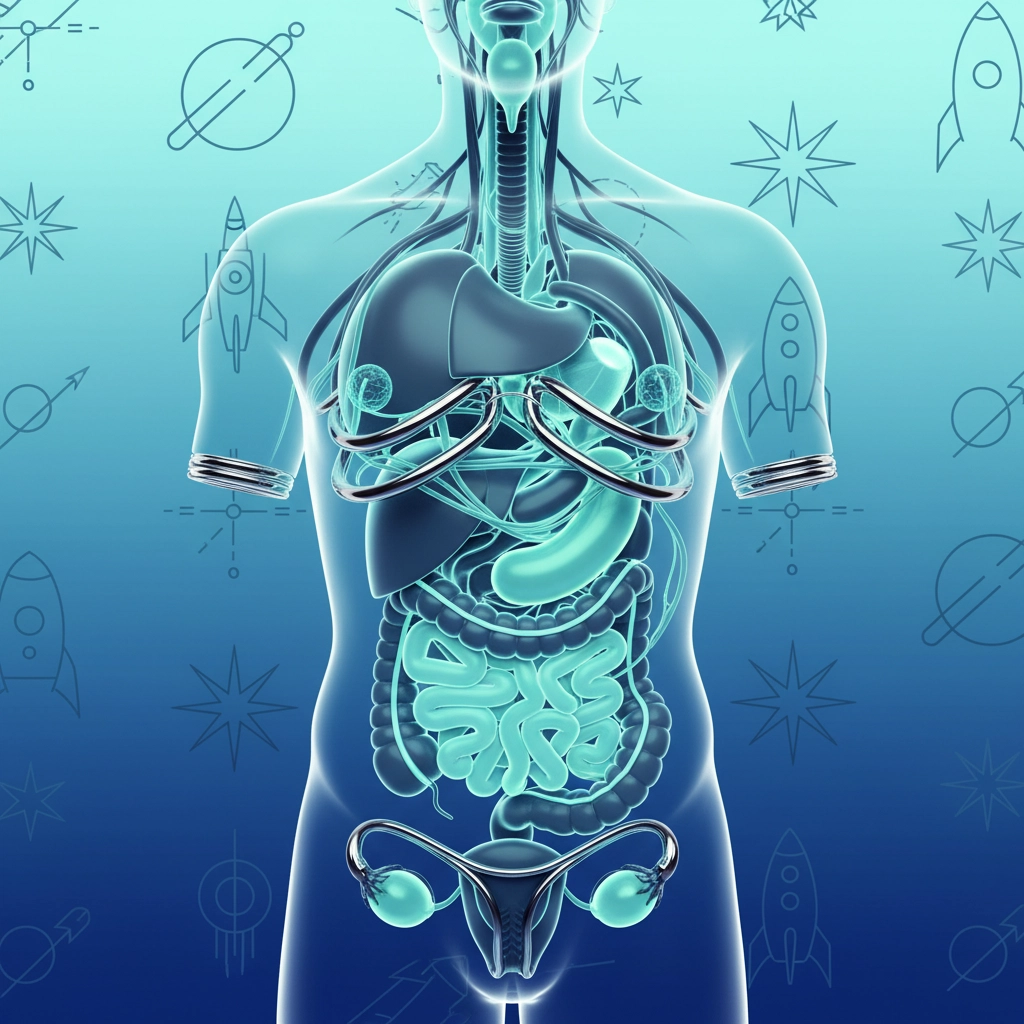Can Infertility Be Cured?

Okay, let's talk about the elephant in the room. You've probably Googled "can infertility be cured" at 2 AM while stress-eating ice cream (been there, done that). The short answer? It's complicated. But here's the thing—while we can't always "cure" infertility like we'd cure strep throat with antibiotics, we can absolutely overcome it in many cases by getting to the root of what's actually going wrong.
Think of it this way: if your car won't start, you don't just keep turning the key harder and harder. You pop the hood and figure out what's broken. That's exactly what restorative reproductive medicine does—except instead of checking your engine, we're looking at your hormones, your gut health, your stress levels, and all the interconnected systems that make baby-making possible.
What the Heck Is Restorative Reproductive Medicine?
Traditional fertility treatment is like putting a Band-Aid on a leaky pipe. Sure, IVF might help you get pregnant by bypassing your natural systems entirely, but it doesn't fix whatever made conception difficult in the first place. It's like hiring someone to carry your groceries because your back hurts, instead of figuring out why your back hurts and fixing it.
Restorative reproductive medicine flips this approach on its head. Instead of working around your fertility issues, it works with your body to identify and repair the underlying problems that are preventing natural conception. It's detective work meets healing—and honestly, it's pretty brilliant.
The whole philosophy is based on a radical idea: your body actually wants to get pregnant. When it's not happening, there's usually a reason (or several reasons) that can be identified and addressed. Maybe your progesterone is tanking after ovulation. Maybe you've got insulin resistance messing with your hormones. Maybe chronic inflammation is throwing everything off. The point is, these aren't mysterious, unfixable problems—they're puzzles we can solve.

How This Is Different From What You've Probably Tried
Here's where things get interesting. Most fertility clinics start with the assumption that your body is broken and needs technological intervention. They'll do some basic blood work, maybe an ultrasound, and if you're not pregnant in a few cycles, boom—straight to IVF.
But restorative reproductive medicine asks different questions. Instead of "How can we bypass your fertility issues?" it asks "What's causing your fertility issues in the first place?" It's like the difference between painting over water damage and actually fixing the leak.
The diagnostic process goes way deeper than typical fertility workups. We're talking comprehensive hormone panels timed to your specific cycle, detailed analysis of your menstrual patterns, assessment of your gut health, evaluation of nutrient deficiencies, and investigation of potential autoimmune issues or hidden infections. It's thorough in a way that might make your head spin—but in the best possible way.
And here's what's really cool: this approach often uncovers issues that standard fertility testing misses entirely. Low-grade thyroid dysfunction that shows up as "normal" on basic tests. Subtle insulin resistance that's quietly wreaking havoc on your hormones. Chronic stress that's keeping your body in survival mode instead of baby-making mode. These are all fixable problems once you know they exist.
The Strategic Healing Process
Once we know what we're dealing with, the real magic happens. Instead of trying to override your natural systems, restorative medicine works to repair and optimize them. It's like giving your body's fertility software a major upgrade.
This might involve targeted nutritional support to correct deficiencies that are affecting egg quality or hormone production. Think beyond basic prenatal vitamins—we're talking about strategic supplementation based on your specific needs. Maybe you need inositol to help with insulin sensitivity, or CoQ10 to support cellular energy production in your eggs.
Hormone optimization is another huge piece of the puzzle. But instead of throwing synthetic hormones at the problem, restorative medicine focuses on supporting your body's natural hormone production. This might mean addressing adrenal fatigue, supporting thyroid function, or optimizing liver detoxification to clear excess hormones.

Lifestyle modifications play a crucial role too, but we're not talking about generic advice like "eat better and exercise more." We're talking about personalized recommendations based on your specific situation. Maybe you need to focus on blood sugar stability to support healthy ovulation. Maybe you need specific stress management techniques because cortisol is disrupting your entire hormonal cascade.
Why Your Emotions Matter More Than You Think
Here's something nobody talks about enough: your emotional state isn't just along for the ride—it's actively affecting your fertility. Chronic stress doesn't just feel terrible; it literally changes your hormone levels in ways that can prevent pregnancy.
When you're constantly worried, anxious, or overwhelmed (and let's be honest, trying to conceive can be all three), your body thinks it's in crisis mode. And bodies in crisis mode don't prioritize reproduction. It's evolutionary biology working against your baby dreams.
But here's the empowering part: once you understand this connection, you can do something about it. Building emotional resilience isn't just about feeling better (though that's important too)—it's actually a fertility strategy. Learning to manage stress, process difficult emotions, and maintain hope in the face of uncertainty can literally change your body's chemistry in ways that support conception.
This is why the best restorative approaches address both the physical and emotional aspects of fertility. You can optimize your hormones all day long, but if you're a stressed-out mess, you're fighting an uphill battle.
The Male Factor Nobody Talks About
Plot twist: about 40% of fertility issues involve male factor problems, but somehow we're still acting like fertility is a women's issue. Restorative reproductive medicine recognizes that making a baby is a team sport, and both players need to be in top form.
Male fertility can be improved dramatically with the right approach. Sperm are constantly regenerating (lucky guys), which means changes in diet, lifestyle, and supplementation can show results in just a few months. Issues like low sperm count, poor motility, or DNA fragmentation often respond beautifully to targeted interventions.
This might involve antioxidant support to protect sperm from damage, addressing varicoceles or other physical issues, optimizing testosterone levels naturally, or identifying and treating underlying health conditions that affect sperm quality. The point is, male fertility isn't a fixed thing—it's highly modifiable with the right strategies.

Real Results, Real Hope
Here's what gets me excited about this approach: it works. Not for everyone (let's be honest), but for a lot more people than you might think. When you address the underlying issues that are preventing conception, amazing things can happen.
I've seen women who were told they'd never get pregnant naturally conceive after addressing undiagnosed thyroid issues. I've seen couples struggling with "unexplained infertility" get pregnant after optimizing their gut health and addressing nutrient deficiencies. I've seen men with terrible sperm parameters completely turn things around with targeted lifestyle changes.
The beautiful thing about restorative reproductive medicine is that even when pregnancy happens, you're not just pregnant—you're healthier. The same interventions that improve fertility often resolve other issues too. Better energy, clearer skin, improved mood, more stable blood sugar—it's like your whole system gets an upgrade.
What This Means for Your Journey
If you're wondering whether your infertility can be "cured," the answer depends on what's causing it in the first place. But here's what I can tell you: most fertility issues are not permanent, unchangeable conditions. They're symptoms of underlying imbalances that can often be identified and corrected.
This doesn't mean it's easy or guaranteed. Some people will still need assisted reproductive technology, and that's okay too. But even in those cases, optimizing your health first can dramatically improve your chances of success with IVF or IUI.
The key is getting the right kind of help—working with practitioners who understand that fertility isn't just about your reproductive organs, but about your whole body working in harmony. People who will dig deep to find the root causes instead of just treating symptoms.
Most importantly, this approach gives you back your power. Instead of feeling like a victim of your biology, you become an active participant in your healing. You're not just waiting for medical intervention to save you—you're taking concrete steps to optimize your fertility from the ground up.
Well, this is one part of improving your fertility, but the secret to improving your fertility fast is to know, understand, and be able to repair all the underlying issues. Download the Conceivable app to get your personalized fertility team with your coach, chef, therapist, and all the tools you need to be successful.
